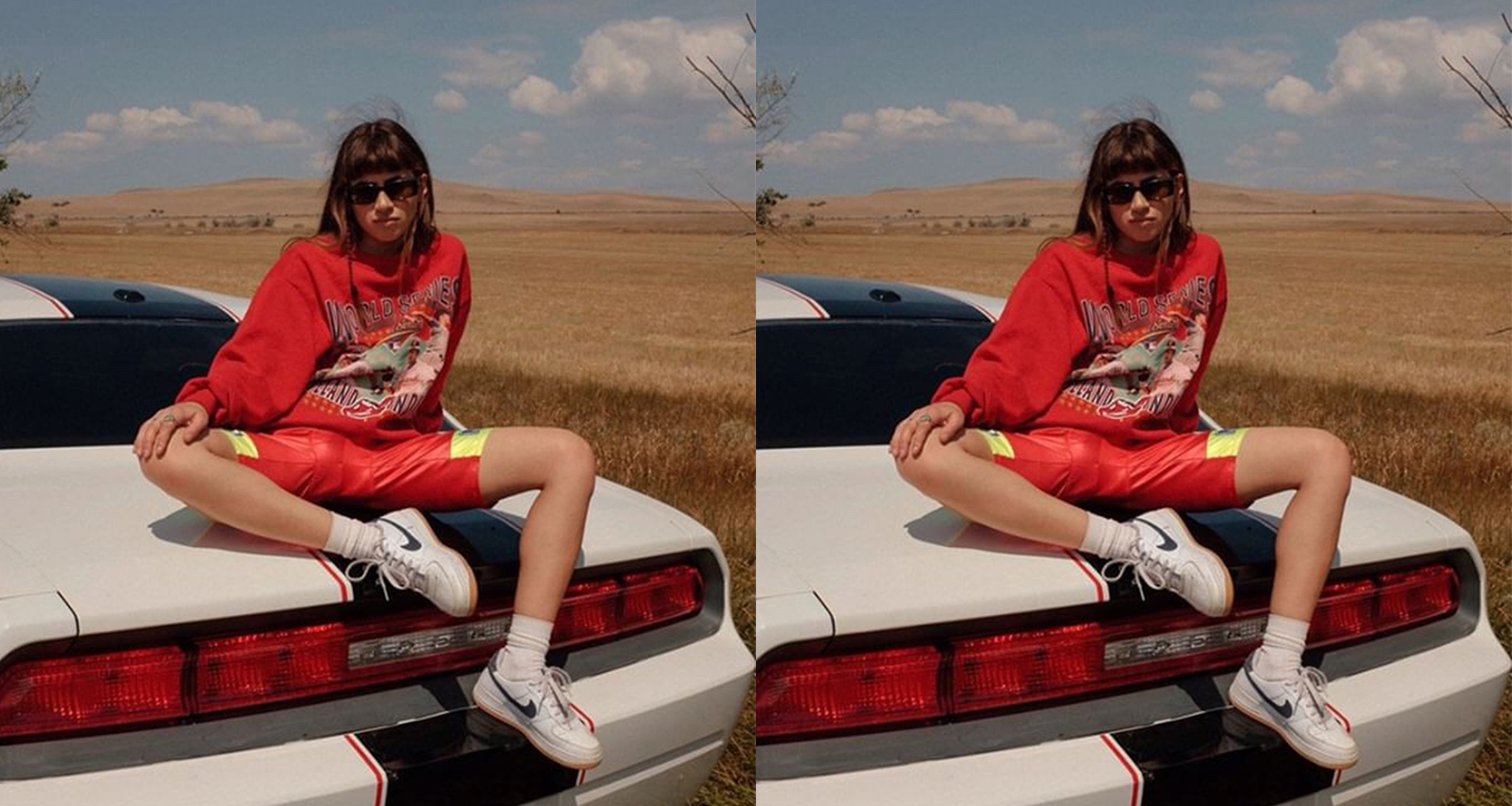A few months ago, Tbilisi-based electronic artist Natia Chichinadze aka Creams checked her DMs and found an interesting proposition therein. The Georgian ready-to-wear brand Matériel — whose story began back in 1949 when they opened a factory that dressed USSR women — were asking her to perform during their SS20 show. Known these days for their sleek faux leather looks ushered in by young creative directors Lado Bokuchava and Aleksandre Akhalkatsishvili, the brand is going from strength to strength. Natia, naturally, said yes.
It was here that we discovered her. We came for the fashion and left having witnessed an exciting delivery of stormy, confessional electronica. Stood possessed as models wearing vintage-inspired faux-leather and luxe silk suiting crisscrossed the catwalk, the striking 24-year-old performed her new single, “DIE 4 YOU”. Musing on the melodramatic things people say to their lovers, Natia’s dark, attitude-laden lyrics set the tone: “You think I’ll die for you / one summer day / when everybody’s at the beach / I’ll be on my way to die for you.”
If you haven’t seen it already, you’ll love the accompanying music video. Directed by Natia’s friend Buba Bebosvhili, it sees her hitch a ride on the back of a sports car, swim underwater fully-clothed and set up camp in a rose-hued kid’s playhouse — all while dressed to kill.
After some post-show detective work, we tracked down Creams and hung out in Tbilisi to discuss her music, radical surroundings and her experience of the Matérial show. Here are our 10 takeaways:
1. Natia started young…
“I’ve been writing songs since I was 14, but that process was very chaotic and complex.”
2. She’s always known that music was her jam…
“Musical language is my favourite — I cannot imagine anything more diverse and complex at the same time that gives me thousands of emotions.”
3. But she has trouble defining her own music…
“It’s difficult. It’s very subconscious, I never think about what to call it. It somehow builds up in yourself from meeting different people or reading different books. And then you just transform it into waveforms.”
4. She was born in the seaside town of Batumi…
“It’s a very different place compared to Tbilisi. It has a subtropical, humid climate and endless horizons, scarlet red sunsets; those images are stuck in your head, and you can’t just delete them. They play a crucial role when it comes to any kind of creativity.”
5. But she lives in Tbilisi, whose style she describes as…
“Advanced, sometimes avant-garde-ish. Politically, and emotionally too, Tbilisi, and the whole of Georgia is very edgy, and even aggressive. I don’t want to use these radical words, but it is somehow radical and you can see it everywhere how people dress, how people communicate, how people write.”
6. Performing at the Matériel fashion show was a challenge, but a good one…
“I’ve never done anything like that before but I love those kinds of challenges. I was a bit nervous because you’re kind of standing in the middle, and I didn’t even know what the models were doing because I was, like, really into my stuff. Everyone’s so idealistic, and I’m so chilled — this big contrast is what made me nervous.”
7. She highly recommends the Tbilisi party scene…
“The techno is pretty tough! I love the parties here because they’re kind of hardcore. Everyone knows each other, even in Bassiani or somewhere else, they’re your friends and you’re just partying all week.”
8. But not the national attitude to creative pursuits…
“The whole of Georgia is like that; everybody wants you to work full time, and then you have no time to do your stuff.”
9. In fact, Natia and her friends all work multiple jobs in order to fund their creativity…
“You never have money here. The common salary is like 700 or 800 GEL [approx £200]. Some people work two or three jobs and they’ve got no money, but they’re still doing something. Some of them are artists, painters, musicians… but you cannot make money just making art.”
10. At the end of the day, music is way more than just a hobby to Natia…
“It’s like therapy. Even if you’re not releasing it or not doing anything with it, it just helps you survive. Too deep I know, but it helps.”
